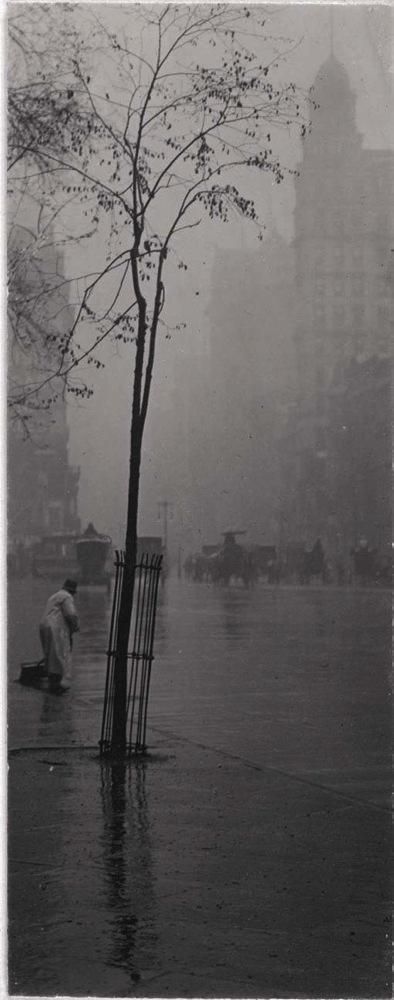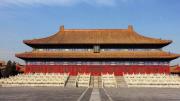Matters military. Having really negotiated with North Korea (see “The Korean Nuclear Crisis,” September-October 2003, page 38), and later served as secretary of defense, Ash Carter (now director of the Kennedy School’s Belfer Center for Science and International Affairs) offers insights into running the Pentagon, U.S. strategic challenges, and more, in Inside the Five-Sided Box: Lessons from a Lifetime of Leadership in the Pentagon (Dutton, $29). Useful background heading into 2020—or for whenever the public and its leaders next take military and defense issues seriously. From a soldier’s perspective—far from the secretary in the hierarchy, but proximate to the Pentagon—U.S. senator Tom Cotton ’99, J.D. ’02 (R-Arkansas), a veteran (and prospective presidential candidate after 2020), writes about Sacred Duty: A Soldier’s Tour at Arlington National Cemetery (Morrow, $28.99).
100 Poems, by Seamus Heaney, Litt.D. ’98 (Farrar, Straus and Giroux, $25). A useful collection of the late Nobel laureate’s work, from first to last, selected by his family members—the first in several projected volumes by the publisher, including a biography. Until the latter appears, Adam Kirsch’s “Seamus Heaney: Digging with the Pen” (November-December 2006, page 52) provides a superb point of entry into the life and poetry.
Young Castro: The Making of a Revolutionary, by Jonathan M. Hansen (Simon & Schuster, $35). A fresh life, based on Cuban archival sources and interviews, of the origins of the larger-than-life figure whose nationalist uprising in his island country ultimately steered into its present, communist gridlock. The author is a senior lecturer on social studies.

The master photographer: "Spring Showers," by Alfred Stieglitz, c. 1900, gelatin silver print
Digital Image © The Museum of Modern Art/Licensed by SCALA / Art Resource, NY
Alfred Stieglitz: Taking Pictures, Making Painters, by Phyllis Rose ’64, Ph.D. ’70 (Yale, $26). The veteran essayist and biographer (Virginia Woolf, Josephine Baker, et al.) briskly portrays the pioneering photographer who made an even greater impact with his gallery, 291, through which Americans came to know Picasso and other foundational modern artists.
Everybody Wants to Go to Heaven but Nobody Wants to Die, by Amy Gutmann ’71, Ph.D. ’76, and Jonathan D. Moreno (Liveright, $27.95). U Penn’s president, a political philosopher, and her faculty colleague, a medical ethicist, draw on the old song title to point out that although Americans “view the afterlife [as] an ideal place where no one has to pay the price of achieving eternal perfection,” it ain’t that way. Given merited concern about, say, the misuse of CRISPR technology to “perfect” embryos, their accessible exploration of American health care and bioethics is important and timely.
Evolution or Revolution? Rethinking Macroeconomic Policy after the Great Recession, edited by Oliver Blanchard and Eliot University Professor Lawrence H. Summers (MIT, $39.95). Having attained “normalcy” after the protracted recovery from the financial crisis and Great Recession—and therefore a period suitable for both reflection and worry about the next, inevitable downturn—a pair of leading macroeconomists present colleagues’ best thinking about monetary and fiscal policy, and about the need for heightened focus on inequality and political economy. Academic, but not impossible.
Coffee Lids, by Louise Harpman ’86 and Scott Specht (Princeton Architectural Press, $19.95 paper). During the next crisis, the macroeconomists (see prior item) may consume a lot of strong coffee. This unusual gem of a book takes seriously the business of designing disposable cups and lids. Copiously illustrated, with mind-boggling detailed diagrams, and the resulting products. You will never ignore your coffee topper again.
The Weil Conjectures: On Math and the Pursuit of the Unknown, by Karen Olsson ’95 (Farrar, Straus and Giroux, $26). A genre-defying exploration of the siblings Simone and André Weil, philosopher and mathematician, respectively, mashed up with a memoir of the author’s own undergraduate math infatuation, carried off in the style and skills she has since honed as a novelist and former editor of The Texas Observer.
Democracy and the Next American Economy, by Henry A. J. Ramos, M.P.A. ’85 (Arte Público/University of Houston, $22.95 paper). A progressive, in search of “where prosperity meets justice” (the subtitle), surveys the socioeconomic landscape and an array of social-justice organizations in pursuit of an agenda for federally guaranteed rights to basic social goods; a unifying civic culture; refreshed democratic institutions; environmental sustainability; and more. Given current crabbed and ugly discourse, it is hard to see how existing institutions could act on his list, but that doesn’t invalidate the making of it.
D-Day Girls, by Sarah Rose ’96 (Crown, $28). A deft, appealing account of the under-recognized role of spies who aided the resistance, sabotaged the Nazi armies, helped turn the tide of World War II. You’re in good hands from the get-go, in Trafalgar Square, as “under the eternal gaze of Admiral Lord Nelson…Mrs. Odette Samson” races to an appointment at the War Office on July 10, 1942, “the 1,043rd day of the world’s worst war.”
Unequal Europe, by Jason Beckfield, professor of sociology (Oxford, $99). Globalization aside, Beckfield’s searching research leads him to conclude that the internal integration of Europe has prompted “a new era of restructuring welfare states in a way that signals the beginning of retrenchment and the ending of Europe’s long-term trend to income egalitarianism.” Thus, just as U.S. critics have taken to bashing the Old World for its supposed sins of socialism and petty regulation in the name of greater equality, both “flaws” are fading away. More generally, an important analysis of the institutional bases of social outcomes, such as the distribution of income among households.
Chinese Architecture: A History, by Nancy Shatzman Steinhardt, Ph.D. ’81 (Princeton, $65). A large-format work of scholarship and accompanying beautiful photographs and illustrations, by the professor of East Asian art and curator of Chinese art at the University of Pennsylvania. Important, indeed invaluable, as China’s explosive urban and industrial growth has transformed its cities and countryside, and destroyed much of its traditional building.
This America: The Case for the Nation, by Jill Lepore, Kemper professor of American history (Liveright, $16.95). Having recently produced These Truths, an enormous reinterpretation of the nation’s entire history (see the review, “True Lies,” September-October 2018, page 64), Lepore focuses more tightly (138 small pages) on what the community really is, the nature of patriotism, and the American traditions that matter—lest they be perverted by illiberal nationalism.
Don’t Read Poetry: A Book about How to Read Poems, by Stephanie Burt, professor of English (Basic Books, $30). As the subtitle suggests, Burt attempts, accessibly and successfully, to demystify poetry by focusing readers’ attention on individual poems, and the reasons for creating and engaging with them: feelings, character, wisdom, and so on. The author, poetry editor for The Nation, was profiled in “‘Kingmaker’ to Gatekeeper” (November-December 2017, page 78).









